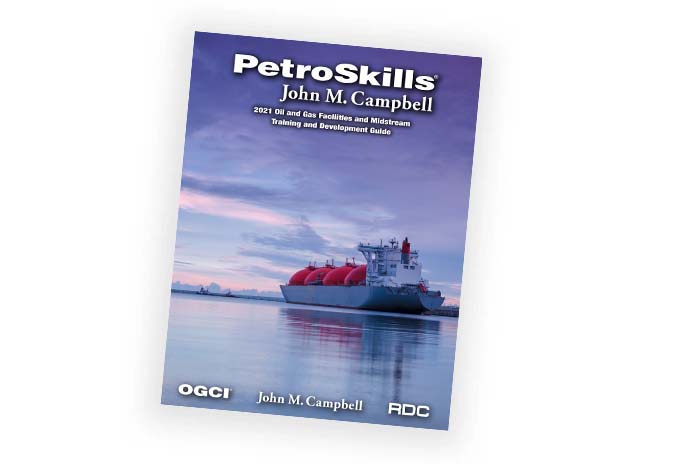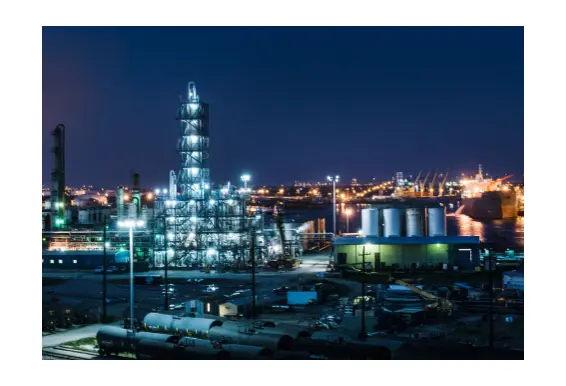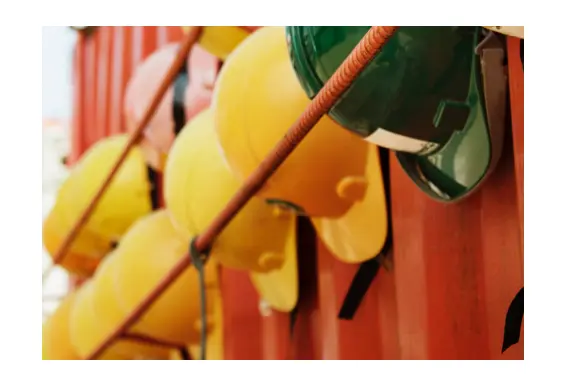TEG Dehydration Fundamentals for Facilities Engineers - G4 Short Course - eLearning series
About the Course
This short course is from the industry-standard Gas Conditioning and Process course (G-4), known globally as the Campbell Gas Course.
This course includes:
- 5 hours prerequisite eLearning modules (participants may test out)
- 5.5 hours required eLearning modules
- 6 hours virtual, instructor-led sessions (pre-recorded)
Click here to see the full G-4 Short Course listing
Dehydration is the process of removing water from a gas so that no condensed water will be present in the system. Water is the most common contaminant in produced natural gas, and is a source for not only hydrates, but corrosion and erosion problems in equipment and pipelines. TEG Dehydration is by far the most common technology used to dehydrate natural gas. These units are often utilized as field dehydration units to prevent hydrates from forming in gathering systems, and in-plant facilities to meet a pipeline water dewpoint specification. Despite TEG Dehydration being used so frequently, these units are subject to multiple operating conditions and limitations depending upon how the system was specified and built.
This short course will review the process of TEG Dehydration. The online module component covers the following topics:
- Gas Dehydration Processes
- Glycol Dehydration
- Methods to Mitigate Emissions
- Types of Internals in Mass Transfer Columns
The virtual, instructor-led lecture will cover the fundamental application of TEG dehydration calculations and analysis. The key performance parameters of these units will be covered in detail. The problem assignment will give participants insight into the issues and limitation of TEG Dehydration technology.
The problem debrief and round table discussion will delve into common operating problems, potential solutions as well as give participants the opportunity to share their experiences.
Prerequisites (of which participants can test out) include Basic Conversions, Gas and Liquid Physical Properties, Pure Component Phase Behavior, Multicomponent Phase Behavior, Water Content of Sweet and Sour Natural Gas.
"Have a much better understanding of what we are seeing on the ground during normal operation and am confident I can work through future issues if needed in the TEG system." - Participant, Australia
Target Audience
Production and processing personnel involved with natural gas and associated liquids, to acquaint or reacquaint themselves with gas conditioning and processing unit operations.
This course is for facilities engineers, process engineers, senior operations personnel, field supervisors, and engineers who select, design, install, evaluate, or operate gas processing plants and related facilities.
These short courses are ideal for mid-career professionals that have experience in the industry and have been transferred to a new role or assignment.
They are also ideal for new engineers that need to get up to speed quickly on the primary principles of gas processing with a deep dive on the issues of the short course topics.
You Will Learn
- Common technologies used to dehydrate natural gas
- Components and process flow in a typical glycol dehydration unit
- Key performance parameters for a glycol dehydration unit
- How to size, analyze and troubleshoot TEG dehydration systems
- Methods to mitigate TEG unit emissions
- Primary operating issues and solutions
Course Content
- Gas Dehydration Processes
- Glycol Dehydration
- Methods to Mitigate Emissions
- Types of Internals in Mass Transfer Columns
- Fundamentals of TEG Dehydration Lecture
- Self-Directed Problem Assignment
- Problem Debrief and Experience Round Table
Product Details
Categories:
MidstreamDisciplines:
Gas ProcessingLevels:
FoundationProduct Type:
CourseFormats Available:
On-DemandAdditional
Request a Public Session
If you are interested in a public session of this course, please click the button below to request it.
Request Public SessionIn-House Training
This course is also available upon request as a private, on-site seminar. Contact us for details and pricing.
Request In-House TrainingNeed Help
Contact us if you have additional questions about how to register for or attend this course.
Contact Us



